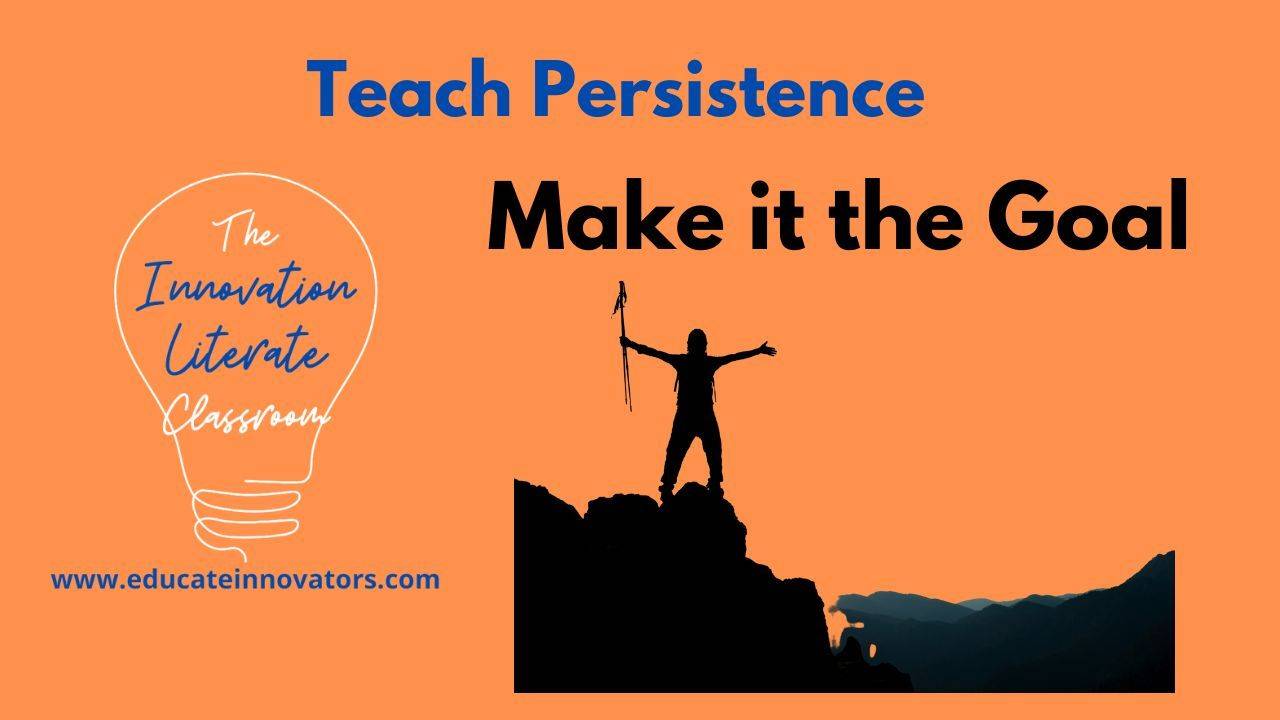The Innovation Literate Classroom
Teaching Tips
What is your go-to gadget or tool that makes your life easier or saves the day? My husband used to say that he could fix anything with a paper clip or duct tape! I don’t know how that’s borne out, but we do find unusual and handy uses for bulldog clips (we have a lot of those around the house from y...
Dr. Jeanne L. Paynter
Our minds tell us “Persistence Stories.” We tell ourselves, “I’m persistent. I can focus my energy on a task and keep working when it’s difficult.” Or, perhaps our minds tell us, “I’m not persistent. I’m scattered, hesitant, uncommitted.” Where do these stories come from? Ou...
Dr. Jeanne L. Paynter
As we saw in Tip 1, metacognition is “above and beyond” thinking. We use metacognition when we ponder: “What is the best way to solve this problem? Am I being successful with this strategy, or do I need to make modifications? What goals motivate and engage me? What are my stre...
Dr. Jeanne L. Paynter
“Stop, look, and listen before you cross the street.” This is an early example of how we teach children metacognition: literally, thinking about (our) thinking. Metacognition is that “above and beyond” analytical thinking we use to set goals, plan, select appropriate problem-s...
Dr. Jeanne L. Paynter
Why do some learners have negative mindsets about their aptitude for persistence?
Traumatic experiences are likely to result in wrong “cause and effect” stories our mind forms about our persistence, such as: I’m helpless, hesitant, unsure, disconnected, unmotivated, aimless...
Dr. Jeanne L. Paynter
I’ve been reading a new book, Mind Your Mindsets, and discovered something about our marvelous brain: It continually seeks to make meaning from our memories and experiences and form “stories” or narratives that help us function. The stories are mostly helpful, until they’re no...
SIGN UP FOR OUR WEEKLY SERIES
The
Innovation Literate Classroom
Learn practical tips to teach all learners how to apply across disciplines "the aptitudes of innovators," those creative problem solvers who will change our world for the better.
You're safe with me. I'll never spam you or sell your contact info.







